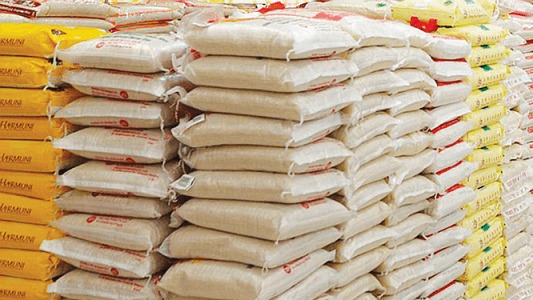Rice consumption in the country has been on a steady rise, beyond the reach of local supply, leading to a supply gap of about two million metric tons annually, a new report has disclosed.
This has led to an over 37 per cent increase in the price of the commodity so far in 2023. This was revealed in ‘AFEX Wet Season Crop Production Report for 2023.
The firm said, “Rice consumption in Nigeria has been steadily increasing, aligning with the consistent growth of the rice market, nearly matching the annual population growth projection of 2.6 per cent at two per cent. This has led to a supply gap of about 2 million metric tons annually.”
So far, Nigeria has spent over $15bn in the past decade to meet its expanding rice consumption, despite its potential to be a net rice exporter, the firm stated.
Globally, rice prices reached their highest point in nearly 12 years in 2023, primarily due to India’s ban on rice exports and the potential impact of El Nino on production in key regions. These factors, along with rain-induced disruptions and variations in quality during Vietnam’s summer-autumn harvest have further contributed to the price surge.
It noted, “A similar trend is observed in Nigeria, where the price of rice has increased by over 37 per cent year-to-date, driven by reduced production in 2022 due to the effects of flooding during the wet season of that year.” The firm also blamed the increase in prices on flooding and the ripple effect of the international market dynamics.
It, however, expects an increase in the production of rice by approximately 4 per cent, and a further increase in the price of paddy rice by up to around 32 per cent.
The firm declared that the production of milled paddy rice has seen a remarkable increase of over 35 per cent in the country, reaching an estimated output of 5.4 million metric tons in 2022, up from 3.9 million metric tons in 2015.
While rice is cultivated across all of Nigeria’s agro-ecological zones, the Northwest region accounts for 72 per cent of the total rice production in the country.
Punch

